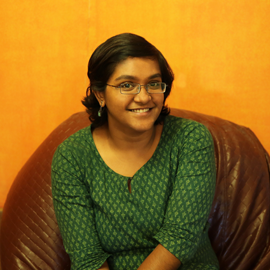Dictators & the art of winning elections

The hype surrounding India's general elections last year was hardly surprising: 814 million eligible voters, 9.3 lakh polling stations, 10 stages of voting and polarised personality-based campaigning. What it didn't have? The startling intrigue and political drama of that many smaller - but often no less significant - elections around the world have.
Here, in no particular order, are a few of the worst offenders.
He's ruled the country since the Soviet Union dissolved and recently won an election with 97.7% of the vote, giving him a fifth consecutive term. The election saw incredible voter turnout of 95.22%.
Speculation about rigged elections was swift, but Nazabayev turned the conversation on its head by saying that it's precisely because he didn't interfere that the election was so fair, and that he feels strange the numbers look more unanimous than they 'should'.
It's pretty clear Kazakhstan's opposition has been sidelined to the point of oblivion: Nazarbayev ran against two opponents who were seen as pro-government. It cannot be denied, though, that Kazakhs continue to believe in him, largely because of the economic reforms of 25 years that have turned the country into one of the more successful nations from the former Eastern Bloc.
After locking up 16,000 opponents and with only 47.5% of Egypt's 53 million eligible voters showing up to vote, and the extension of the elections to a third day, the true shocker would have been if al-Sisi had in fact lost.
Three years after the 2011 Arab Spring, the protests and unrest continue, but they haven't been able to deflect al-Sisi's rise from military man to defence minister to 'elected leader'. It has been a rocky leadership: he declared the Muslim Brotherhood illegal, had 683 members of the Brotherhood killed in one swoop, has jailed scores of mediapersons, including the much-talked-about al-Jazeera journalists.
Move over Robert Mugabe. Teodoro Obiang Nguema Mbasogo, president of Equatorial Guinea, is set to give other dictators a run for their money. Western media may have found it hard to get past the 103% vote-share he received from a single precinct during the 2002 elections, but that number is only an emblem of his corruption and megalomania.
Obiang came to power in 1979 in copybook style: he had the then president, his tyrannical uncle, shot. In 2003, a state-operated radio station declared him a god, claiming he had 'power over all men and things'. His luck held when vast reserves of oil were discovered in Equitorial Guinea, except that the hundred million dollars that flow in from the oil companies reach a few elite, while the rest of the country is mired in abject poverty.
Where there's oil, there's Western benevolence: it seems the man will be forgiven all his transgressions.
When every one of your opponents praises you wholeheartedly in the course of their election campaign, your chances of winning naturally seem high. Berdymukhamedov first came to power in 2007, following the death of the only other ruler the country has ever seen, Saparmurat Niyazov. He was re-elected in 2012 with 97% of the vote, no real opposition and an absolute control on media.
Turkmenistan has one of the world's most repressive regimes, with complete restriction on speech and religion; there is constant danger to human rights advocates and activists, and well as the country's ethnic minorities.
The media scenario is similar: Reporters Without Borders calls Turkmenistan the third worst country in terms of press freedom (after North Korea and Eritrea), where each broadcaster has to swear that nothing they say will slander the country, the flag or the President.
In 2014, in the midst of a bloody civil war that had already wrecked the country for years, Syria organised its first multi-candidate election in decades. Previously Assad, and before him his father Hafez Assad, were both elected in single-candidate referendums with yes-or-no ballots.
This new election, then, should have been all about hope - except the two other candidates were little more than mandatory boxes on a ballot sheet.
Worse, by offering the election as the only possible solution to the conflict, Assad all but guaranteed prolonged violence, especially in rebel-held areas, where virtually no voting took place.
It was the clearest indication yet that, in the face of countless deaths and bloodshed, Assad will do what it takes to remain in his seat.
Kim Jong-un won all the votes last year. No buts, no hows, no 'I voted' selfies on Instagram. Although he's not technically president - that post has been permanently filled from the heavens by the deceased Kim Il-sing - Kim Jong-un did take over as dictator of North Korea through a ballot process that had one name from the leading Workers' Party for every district and a yes-no option.
No one, it seems, wanted to find out where ticking 'No' could lead.
A little over 60% may not sound like much, but Vladimir Putin doesn't care for numbers, only what he can make them mean. The post-Communist nation ostensibly has regular elections, new faces in power every so often, and a prime minister.
But Putin decided in 2012 that two terms weren't enough for him, so he changed the law.
It's possible the elections were fairer than others on this list, but given his crackdown on LGBT individuals and groups, jailing protestors - most famously Pussy Riot - and his aggression on Crimea, taking Putin on seems like more than the world wants to bite off.







![BJP's Kapil Mishra recreates Shankar Mahadevan’s ‘Breathless’ song to highlight Delhi pollution [WATCH] BJP's Kapil Mishra recreates Shankar Mahadevan’s ‘Breathless’ song to highlight Delhi pollution [WATCH]](https://images.catchnews.com/upload/2022/11/03/kapil-mishra_240884_300x172.png)

![Anupam Kher shares pictures of his toned body on 67th birthday [MUST SEE] Anupam Kher shares pictures of his toned body on 67th birthday [MUST SEE]](https://images.catchnews.com/upload/2022/03/07/Anupam_kher_231145_300x172.jpg)






